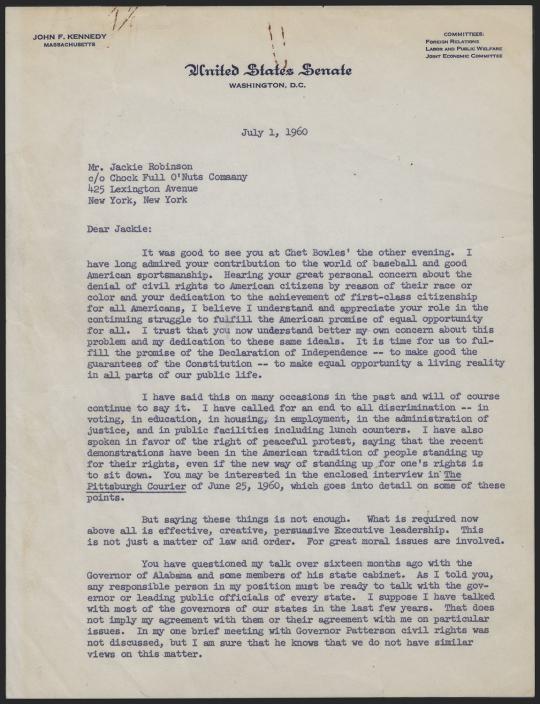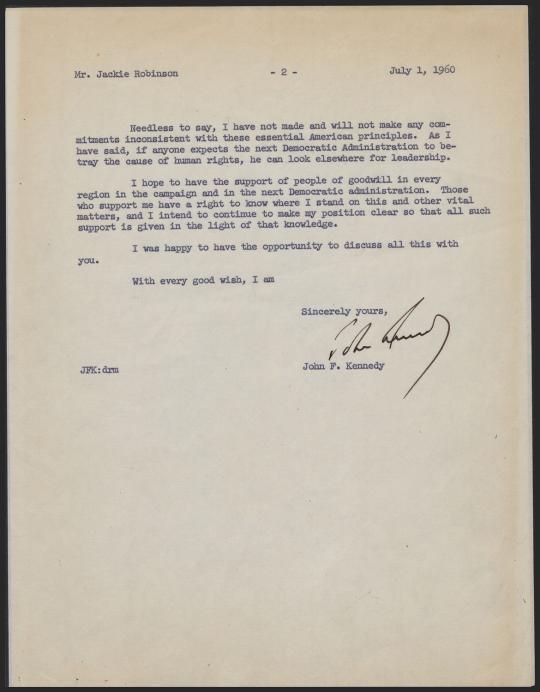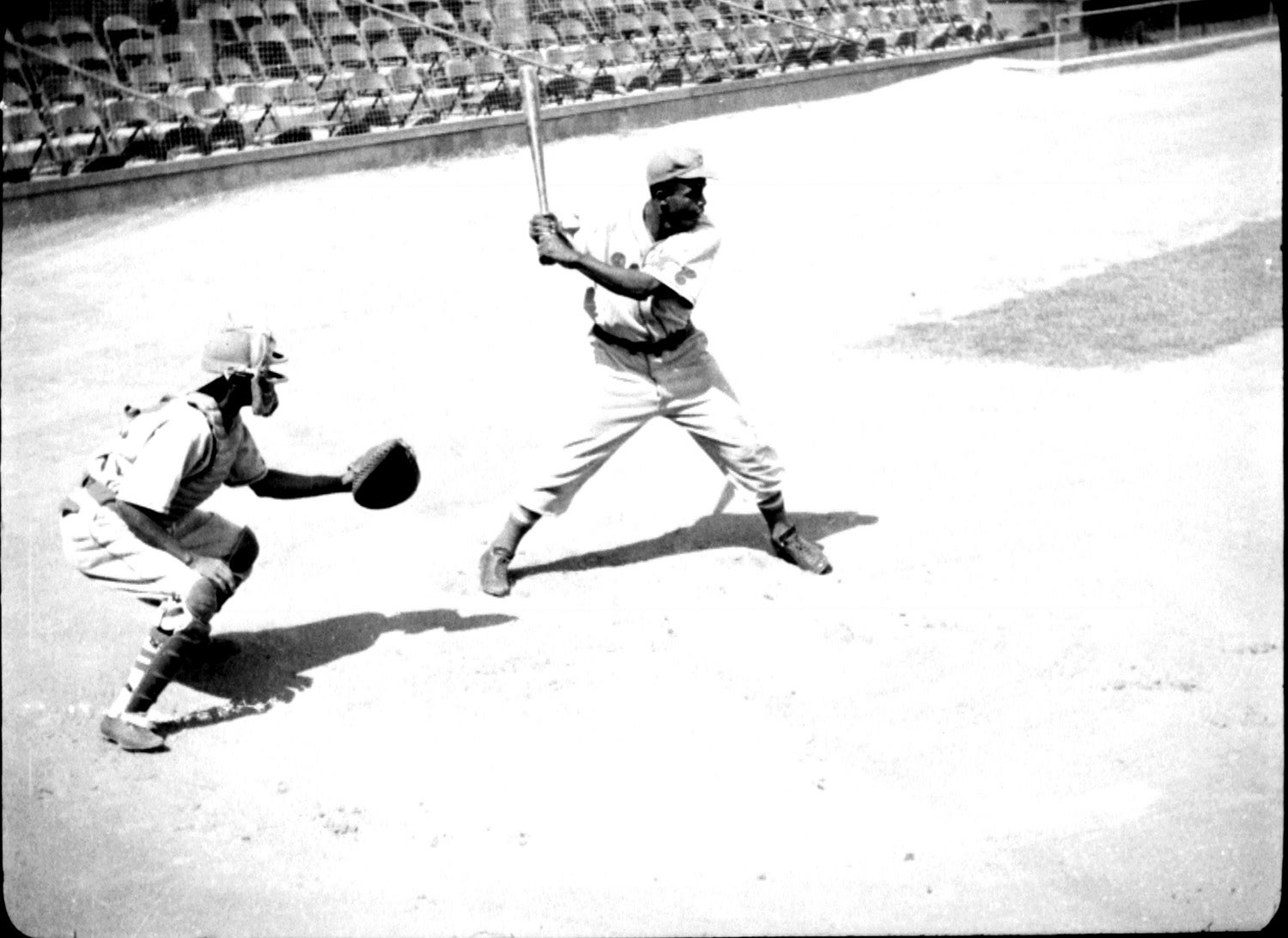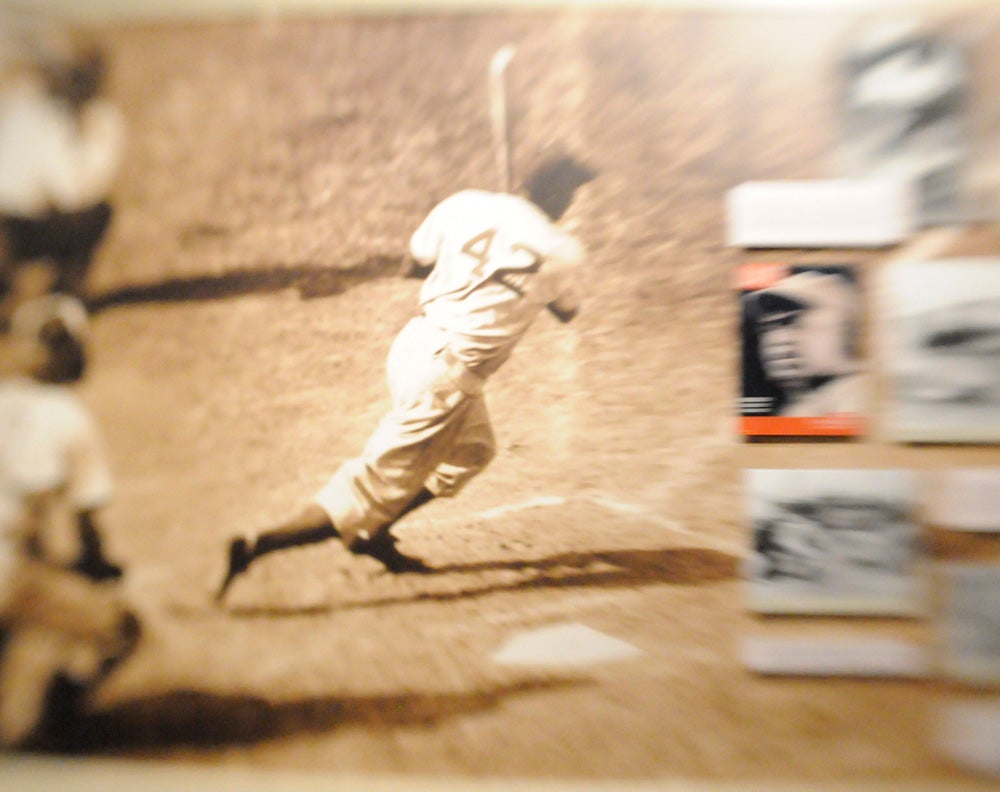- Home
- Our Stories
- JFK’s letter to Jackie Robinson
JFK’s letter to Jackie Robinson
In July 1960, four months before winning the election that would make him the 35th President of the United States, John F. Kennedy sent a letter to Jackie Robinson. In it, Kennedy continued a discussion he had begun in an earlier meeting with Robinson.
Robinson had been retired from baseball for three years and was still two years away from his induction into the Hall of Fame, but he was an important figure in Black community and a well-known Civil Rights advocate. Kennedy’s letter shows Robinson’s importance clearly. Kennedy was aware that Robinson’s support meant more than just one vote: It opened the door to block of voters that Kennedy desperately needed.
Almost 58 years later, Robinson remains a symbol of justice and equality – and his legacy will be honored on Major League Baseball’s annual Jackie Robinson Day celebrations April 15.
This letter from John F. Kennedy to Jackie Robinson is preserved in the archive of the National Baseball Hall of Fame and Museum. PASTIME (National Baseball Hall of Fame and Museum)
Share this image:
Hall of Fame Membership
There is no simpler, and more essential, way to demonstrate your support than to sign on as a Museum Member.
At the time of the meeting and subsequent letter, Robinson supported then-Vice President Richard Nixon’s candidacy. The two Californians had met while Robinson was playing for the Dodgers and hit it off when Nixon recalled a football game Robinson had played while at UCLA. On top of that, Robinson was impressed with Nixon’s record on Civil Rights. On the other hand, Robinson found Kennedy to be lacking in his Civil Rights record, as well as in his knowledge of the problems faced by African Americans.
Robinson was “appalled that [Kennedy] could be so ignorant of our situation.”
This letter did little to change Robinson’s support of Nixon, though it did quiet some of Robinson’s outspoken public criticism of Kennedy. It was not until the two candidates reacted to Martin Luther King Jr’s imprisonment after an October protest that Robinson truly began to change how he viewed both Kennedy and Nixon.
Robinson personally asked Nixon to do something about King’s arrest, but Nixon preferred to keep silent. Kennedy meanwhile, supported King, including making a call to his wife. This started a change in Robinson’s feelings that would not fully be complete until Kennedy’s strong reaction against the police violence in Birmingham, Ala., just a few months before his assassination.
While ultimately greater events led to the election of John F. Kennedy, this letter – which is preserved in the archive of the National Baseball Hall of Fame and Museum – shows the place Jackie Robinson has in the history of politics and America, as well as his importance in the history of baseball.
Amanda Belli is a curatorial intern at the National Baseball Hall of Fame and Museum






